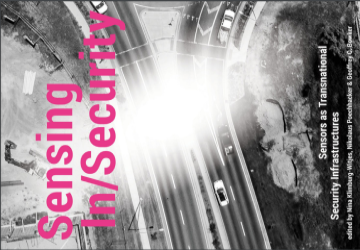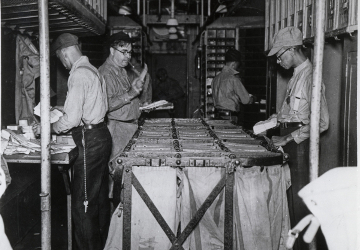Changing the World(s)
As social scientists we are trained to be critical and make social issues visible. But how can we make a difference and not just another publication? Only recently I read a blog post discussing the question how sociology can engage with and change society. Hannah Jones comes to the conclusion that we need an ‘amphibious sociology’, adapting to more than one environment if we want to live as academics and critical sociologists. But how can we adapt to these different environments and how do we reach out to other communities?
These were the questions I had in mind when we started to organize this year’s Changing Worlds Conference. How can academia, activism, and art talk with and inform each other, and how can we as social scientists (not just sociologists) adapt to more environments, learn new languages to interact with, and think about these new ecosystems? Art and activism surely can be new ecologies for social scientists to interact with their study subject outside the ivory tower. The question for me – as I am a social science person – is just: how? During the conference a lot of interesting presentations, performances, and discussions tried to explore these questions.
With his contribution – Scientific Post Poetry. Imitation of a bachelor thesis – Moritz Gottschalk raised the question about the limits of imitation and parody of established publishing practices in science. With his bachelor thesis written on a silk scarf he mimics and questions established presentations of knowledge within science. Looking at the scarf, I asked myself how content and form of presented knowledge relate and how they limit each other. This question becomes even more interesting, when keeping in mind that these publishing practices are very different across the disciplines.
Shannon Spruit and Zoë Robaey presented the Impact! project in which they explored how they can teach ethics in novel ways at the TU Delft, giving their students the opportunity of exploring and expressing concerns through dancing performances, visual representations, and workshops on ethics. I was really excited learning about this project and the new approaches to engage with engineers. Interacting without the usual academic slang and doing ethics instead of discussing literature creates interesting moments of mutual learning and reflecting on issues of society and technology.
With the propagation of things Maria Trabulo, Michaela Putz, and Christoph Perl explored how we create, collect and interact with data. During the conference objects were collected, observations written down, and the noise during the coffee break recorded. Together, these elements built an assemblage, a repository that represents and constructs the conference and its participants at the same time. How does the collected information relate to the topics discussed, what are they telling (about) us? In selecting “relevant” information and objects, how are we creating a specific past? To me, these questions resonate very well with the questions how we construct our societies or our selves through mass surveillance or quantified self applications.
There have been many more and equally interesting contributions and discussions. Yet, some of the experiences I made are hard to verbalize – like the train of hope presentation that left half of the room in tears. In the end I have the feeling that the conference left me with more questions than answers.
However, being part of this event was really exciting and inspired many new thoughts and questions. Crossing the borders of academia toward unknown lands felt really good. So let us all leave our ivory tower from time to time and learn from other knowledge cultures – this way we may have new chances to make a difference and change the world.









